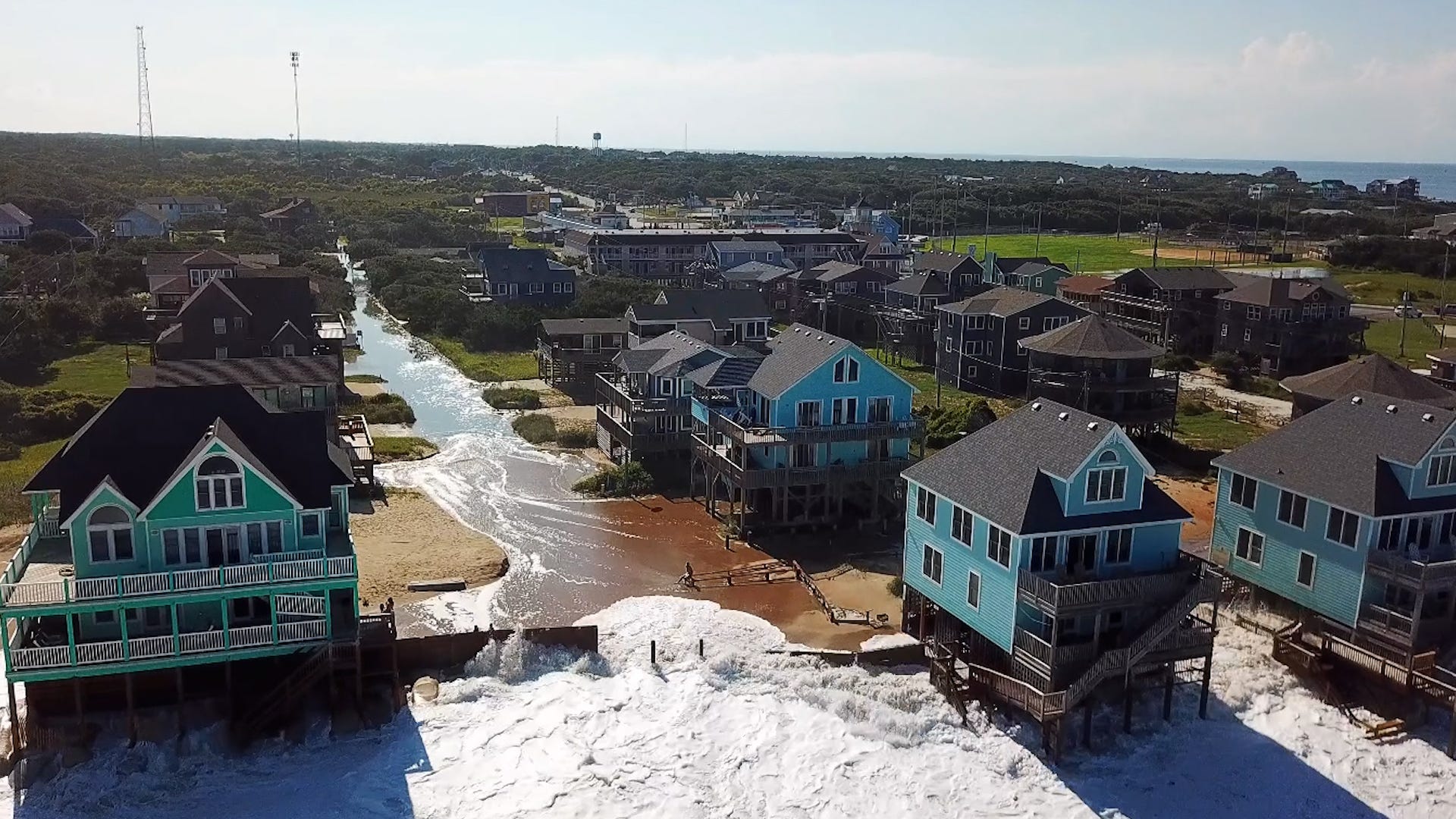What To Do If Your Vacation Plans Are Canceled By Weather Amid Hurricane Erin

- Airlines are offering refunds for canceled flights, but weather-related disruptions may not qualify for additional compensation.
- Travel insurance may cover trip cancellations or interruptions if the destination is uninhabitable, but policies must be purchased before the storm is named.
- Airbnb and Vrbo have policies for disruptive events, but coverage for foreseeable weather events like hurricanes may be limited.
Hurricane Erin churned along on Aug. 20, bringing dangerous conditions to parts of the United States and other popular destinations that could impact travel plans.
Much of the country's East Coast, along with the beaches of the Bahamas, Bermuda and Atlantic Canada, are likely to see life-threatening surf and rip currents "during the next several days," according to the National Hurricane Center.
“Storm surge flooding and tropical storm conditions are expected in the North Carolina Outer Banks beginning later today or tonight,” an Aug. 20 advisory said. “The storm surge will be accompanied by large waves, leading to significant beach erosion and overwash, making some roads impassable.”
Here's what travelers should know if trips are disrupted.
Flyers are owed refunds if their flight is canceled for any reason and they choose not to travel on alternative flights offered by their airline. Passengers can sometimes get additional compensation if the reason is within the airline’s control, but weather doesn’t fall into that category.
Airlines also often offer waivers that let travelers change their flights without paying extra fees or a fare difference, so it’s worth checking with your carrier before flying. Around 190 U.S. flights were canceled as of 1 p.m. ET on Aug. 20, according to flight-tracking site FlightAware.
Travelers may also be entitled to refunds for a “significant delay,” though that can depend on how long the delay lasted, the flight’s length and other factors, and does not have a standard definition. “DOT determines whether you are entitled to a refund following a significant delay on a case-by-case basis,” the Department of Transportation’s website reads.
“Trip cancellation or interruption coverage may apply – especially if Hurricane Erin makes your destination uninhabitable,” Suzanne Morrow, CEO of InsureMyTrip, told USA TODAY in an email.
However, she noted that for hurricane coverage, travelers must buy their policies before a storm is named, and recommended buying early. Cancel For Any Reason (CFAR) plans can also cover cancellations for reasons standard policies may not.
“CFAR must be purchased within 14-21 days of the initial trip deposit and can reimburse up to 50%-75% of prepaid, non-refundable trip costs if the trip is canceled at least 48 hours before departure,” Morrow said.
Airbnb’s Major Disruptive Events Policy covers a range of potential events, including unforeseeable weather and natural disasters. The policy allows guests to cancel their booking and get a refund, credit or other compensation, according to Airbnb’s website.
However, certain weather events are not covered, such as those that “are common enough to be foreseeable in a given location, such as hurricanes in Florida during hurricane season or winter weather in the northern hemisphere during winter months,” the company noted. Travelers can contact Airbnb directly to ask whether their reservation is eligible.
Vrbo has a similar Extenuating Circumstances Policy. “Foreseeable weather disasters (such as hurricanes, cyclones, and extreme winter storms) may be covered if they cause or coincide with another covered event,” the vacation rental platform said on its website. “For example, a hurricane that causes prolonged outages to public utilities to a vast majority of homes in a major region or city (cannot be outages to a few neighborhoods).”
Contributing: Zach Wichter, USA TODAY
Nathan Diller is a consumer travel reporter for USA TODAY based in Nashville. You can reach him at ndiller@usatoday.com.
Popular Products
-
 UV 1800mAh Tattoo Sterilizer Box Rech...
UV 1800mAh Tattoo Sterilizer Box Rech...$289.76$99.99 -
 Ulanzi T2 Metal Desktop Stand Long Ar...
Ulanzi T2 Metal Desktop Stand Long Ar...$73.99$50.78 -
 Portable Motorcycle Waterproof Wirele...
Portable Motorcycle Waterproof Wirele...$73.99$50.78 -
 Sports Water Bottle Large Capacity fo...
Sports Water Bottle Large Capacity fo...$73.99$8.78 -
 Medical Compression Socks for Varicos...
Medical Compression Socks for Varicos...$98.99$68.78